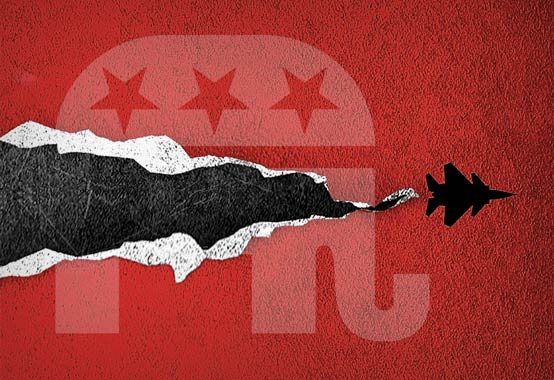A Very Biased Article on GOP Foreign Policy Divisions

This WSJ article on Republican foreign policy divisions would have benefited greatly from having the reporters talk to a few people that aren’t neoconservative or hard-line. The article refers to the disagreements among the current presidential candidates, it identifies Paul, Trump, and Cruz as dissenting from some part of Bush-era foreign policy (which is self-servingly dubbed “mainstream Republican”), and it includes some direct quotes from Cruz. However, it allows vehement defenders of Bush’s foreign policy and former Bush administration officials (including some Rubio supporters) to set all of the terms of the debate. The article is skewed heavily in their favor. Other than the Cruz statements, it includes two brief, uninformative quotes from Cruz advisers. The other campaigns mentioned in the article aren’t represented, nor is anyone who might be even slightly sympathetic to their arguments. To say that it stacks the deck in favor of one side is putting it very mildly.
Everyone else quoted in the article is a former Romney adviser, or is closely identified with the most hard-line foreign policy views in the party, or both. Eliot Cohen, Elliott Abrams, Danielle Pletka, and Dan Senor are left to define their preferred policies as “mainstream Republican foreign policy” and no one from any other perspective on the right is cited. This report doesn’t begin to explain why many Republicans and conservatives want nothing to do with Bush-era ideological crusades. It certainly doesn’t give the slightest hint that “mainstream Republican foreign policy” came to mean preventive war, “nation-building,” and constant meddling in the internal affairs of other countries only in the last twenty years (and really only in the last 14), or that even during this period many conservatives had strong and principled objections to the direction that Republican foreign policy was taking. Instead of illuminating the sources of the disagreements on the right, the article lets one side of the intra-Republican debate do almost all of the talking to the detriment of the quality of the debate and the audience’s understanding. Most of the people quoted in the article have every incentive to dismiss criticisms of the Bush administration, since some of them worked for it and all of them strongly supported its policies at the time. An article that ought to be reflecting the content of the disagreements on policy turns into an exercise in reinforcing the idea that the positions held by the two leading Republican presidential candidates represent a “deviation” from the norm when something close to the opposite is the truth.
Comments